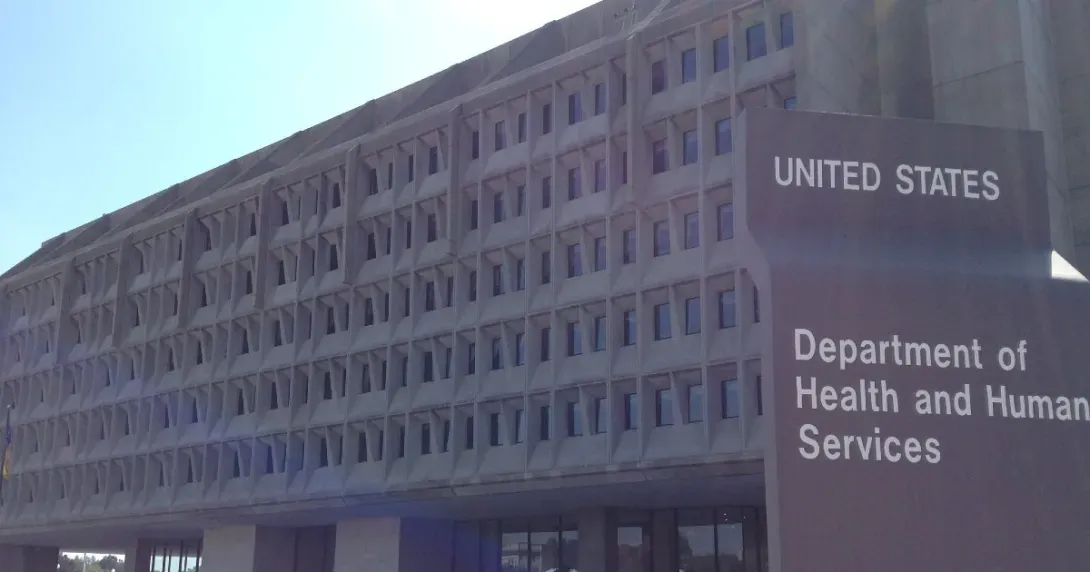
Photo: U.S. Department of Health and Human Services by WEBN-TV/Flickr,
licensed under CC BY-ND 2.0
Federal health agencies, led by the Assistant Secretary for Technology Policy/Office of the National Coordinator for Health IT and the HHS Office of Inspector General, are encouraging the public to report instances of information blocking.
In an announcement this week that HHS Secretary Robert F. Kennedy Jr. "has directed HHS to increase resources dedicated to curbing the harmful practice of information blocking," the department warned that it is taking an active enforcement stance to ensure patient access to their electronic health information, with officials promising to investigate and hold violators accountable.
WHY IT MATTERS
In the announcement, which the agency said was directed at both patients and health tech developers, HHS is encouraging those who have experienced or observed information blocking in a health setting to report it through the ASTP/ONC Report Information Blocking Portal.
"Today’s announcement is a warning to actors still engaging in information blocking to come into compliance with the rules governing the flow of patient information," the department said Wednesday. "HHS will take an active enforcement stance against healthcare entities that restrict patients’ engagement in their care by blocking the access, exchange and use of [EHI]."
Because patients rely on their health information to adhere to their medical treatment plans, monitor their conditions and progress, and track data accuracy, access to that information is "critical to delivering on Secretary Kennedy’s promise to Make America Healthy Again," HHS added.
A final rule on financial disincentives for info blocking was released under the Biden administration in 2024, but HHS says it's making enforcement a bigger priority under the Trump administration.
ASTP/ONC and OIG will take lead roles in holding those who block patient information accountable to prevent future violations, HHS said.
"Patients must have unfettered access to their health information as guaranteed by law," said acting Inspector General Juliet Hodgkins in a statement, promising that OIG will deploy "all available authorities to investigate and hold violators accountable."
Healthcare providers and other health IT covered by the rule "have a legal duty to ensure that information flows where and when it’s needed," she added.
Of note, HHS explained how the final rule sought to improve health information access and health IT choice by ensuring patients have easy electronic connections to their EHI at no cost and that healthcare providers can choose and use digital care tools without excessive costs or technical barriers.
We asked HHS for more specifics on how its agencies are acting to support those goals in the final rule. We will update this story with any information provided.
THE LARGER TREND
ASTP/ONC and OIG were authorized under the 21st Century Cures Act of 2016 to take enforcement actions to hold those who block patient information accountable and to prevent future violations.
"Information blocking was not a priority under the Biden administration," HHS said in its announcement about the information blocking crackdown. "That changed under President Trump and Secretary Kennedy."
Meanwhile, last year, HHS released its final rule on financial disincentives for information blocking. In that rule, providers who engaged in information blocking could face significant penalties, including being ineligible for key Medicare programs.
There are penalties for various provider types. Hospitals could lose their market basket increase, while Medicare Promoting Interoperability Program (MIPS) clinicians might receive a zero score in their Promoting Interoperability category. Certain Accountable Care Organizations and ACO participants could be excluded from the Medicare Shared Savings Program.
In 2023, ASTP/ONC reviewed proposed disincentives and offered examples of how the penalties could affect doctors and practices.
Using an example under the MIPS Quality Payment Program, the agency said its estimates "illustrate that the median individual disincentive amount could be a loss of $686 for an eligible clinician, while an estimated median group of six clinicians could see a loss of $4,116, with a range of $1,372 to $165,326 for group sizes ranging from two to 241 clinicians."
While industry groups like the American Hospital Association and the Medical Group Management Association responded critically to HHS finalizing disincentives, health IT vendors generally expressed support.
"I admire the ONC and CMS for enacting the 21st Century Cures Act," Dr. Jay Anders, chief medical officer at analytics developer Medicomp Systems, told Healthcare IT News at the time. "The stringent penalties it now imposes serve as a strong impetus for compliance."
ON THE RECORD
"We have already begun reviewing reports of information blocking against developers of certified health IT under the ONC Health IT Certification Program and are providing technical assistance to our colleagues at OIG for investigations," said Dr. Tom Keane, Assistant Secretary ASTP/ONC, in the HHS statement this week.
Andrea Fox is senior editor of Healthcare IT News.
Email: afox@himss.org
Healthcare IT News is a HIMSS Media publication.


